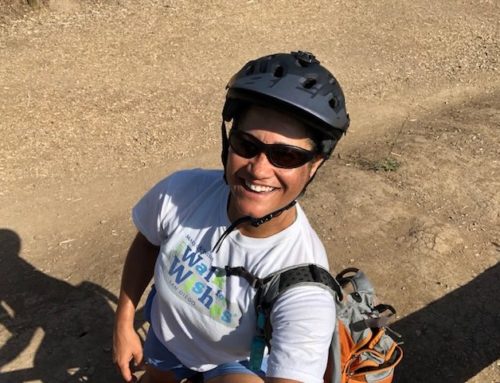Just today, I was approached by a young boy who asked me how to lose weight and get in shape. While I admire his motivation and initiative in inquiring on his own, at the same time I feel sympathy for him because he feels ashamed of the way he looks. I just hate to see children worrying about their waistlines when they’re only worries should be what the teams will be for tomorrows neighborhood game. Nowadays, child obesity is becoming much more common in part because of a movement away from active games and sports (like football and tag), to more sedentary activities (like video games). Granted, there are some children out there who may have a physical or genetic reason why they are overweight, but most just simply don’t get as much exercise as they should.
As you are probably well aware of, feelings of inferiority, self-consciousness, and inadequacy that begin in childhood can last long into adolescence and adulthood. That is why it is so very important to try and correct any weight problems as soon as possible, and to support the child in his or her weight-loss endeavor rather than to try and shame them into making changes. The tough love approach does nothing to enhance a child’s self-esteem, and only serves to tear down what confidence they do have.
One thing you can do as an adult is to help the child to develop good health habits by discussing the importance of exercise and eating healthy. If you are a parent, you can make sure that you are providing healthy food for your child to eat. If you don’t have control over the child’s dietary habits, you can only explain to him/ her the importance of making healthy choices and making little changes like substituting fruits for candy and chips.
If you can instill regular exercise in kids at a very young age, that will take so much of the effort out of it as an adult if exercise is simply viewed as something that you just do, and don’t even think about. That way, it is much easier than trying to start a new habit as an adult, when we have a tendency to rationalize and over-analyze. Heed the Nike slogan, and Just Do It! We can all learn something from that phrase—it’s a very powerful metaphor.
Below are some tips to help you instill exercise into your young person’s life:
- Talk to them in a positive manner about exercise and allow them to ask questions.
- Help by enrolling them into activities that promote health and well-being
- Set guidelines outlining how they are allowed to spend their free time
- Provide healthy meals and stock the frig with healthy snacks
- Exercise with the child
- Reward the child for his/ her accomplishments by providing positive reinforcements
- Make exercise something that the family does together—organize family biking trips, in-line skating, etc…
- Attach a “fun” stigma to exercise—make the experience something that the child wants to do
Remember, you are making life a lot simpler by helping the child out now rather than waiting until later in life. Once the negative self-image has planted its seeds, it’s very hard to get rid of. Kids are like clay—you possess the ability to shape their beliefs as children, which will affect their lives as adults.
Melissa Allen, BS, CPT, CES is a certified personal trainer, corrective exercise specialist and Medifast health coach, is the owner of the Optimum Condition Corrective Exercise & Performance Center, located in El Cajon, in the East County of San Diego. We specialize in customized fitness training and corrective exercise for both recreational athletes and post-rehab clients, as well as guaranteed weight loss programs or your money back. You can schedule a free consultation to help you get started. Please visit her website at OptimumCondition.org.





